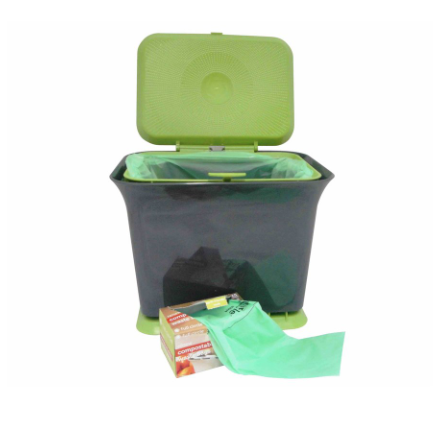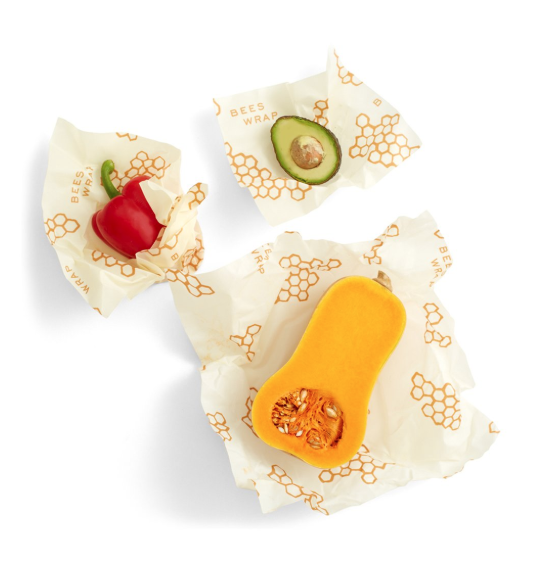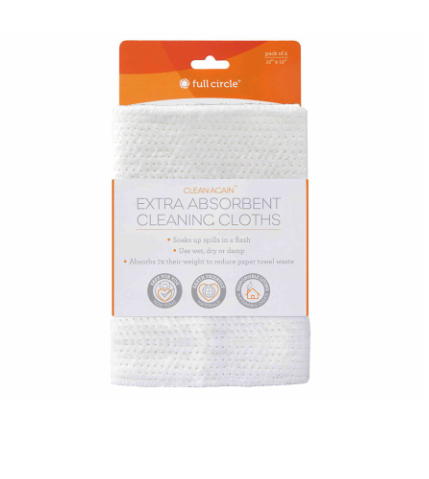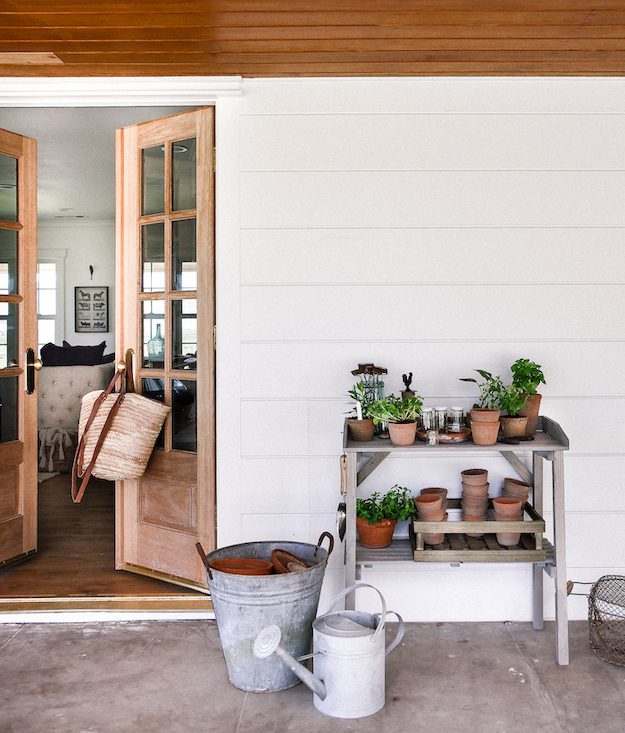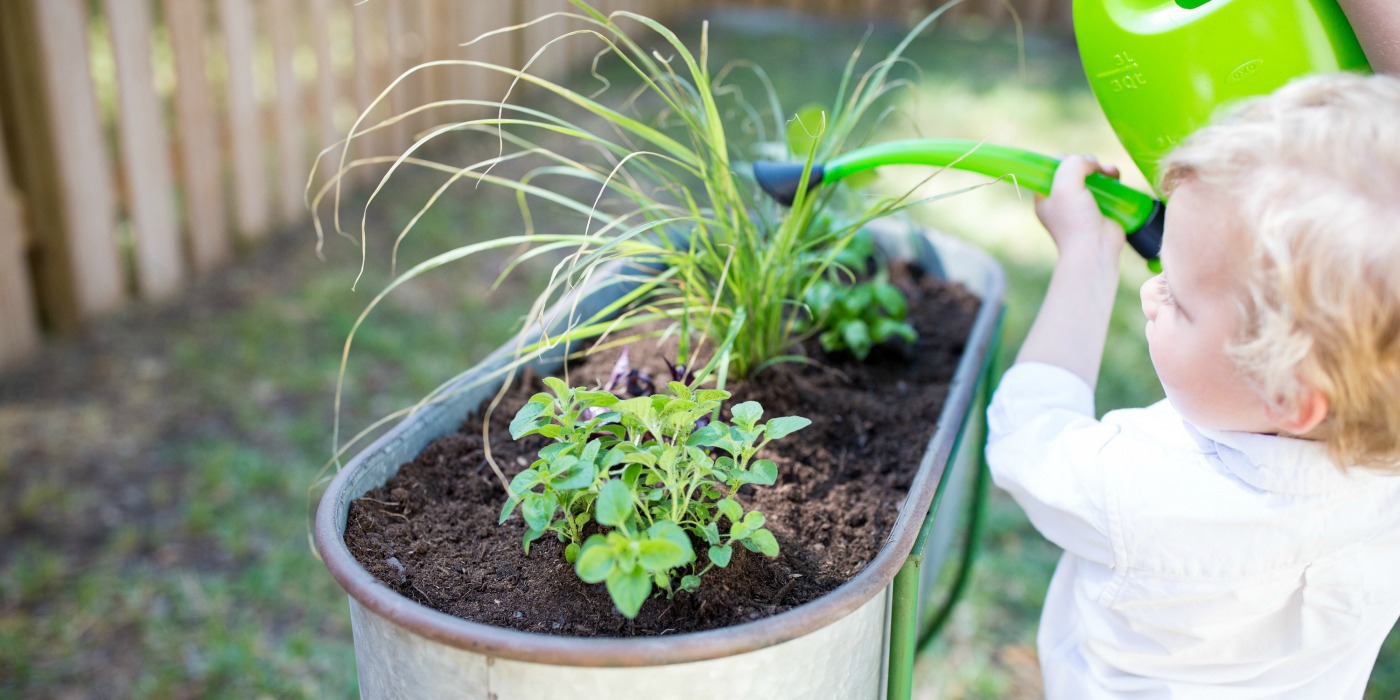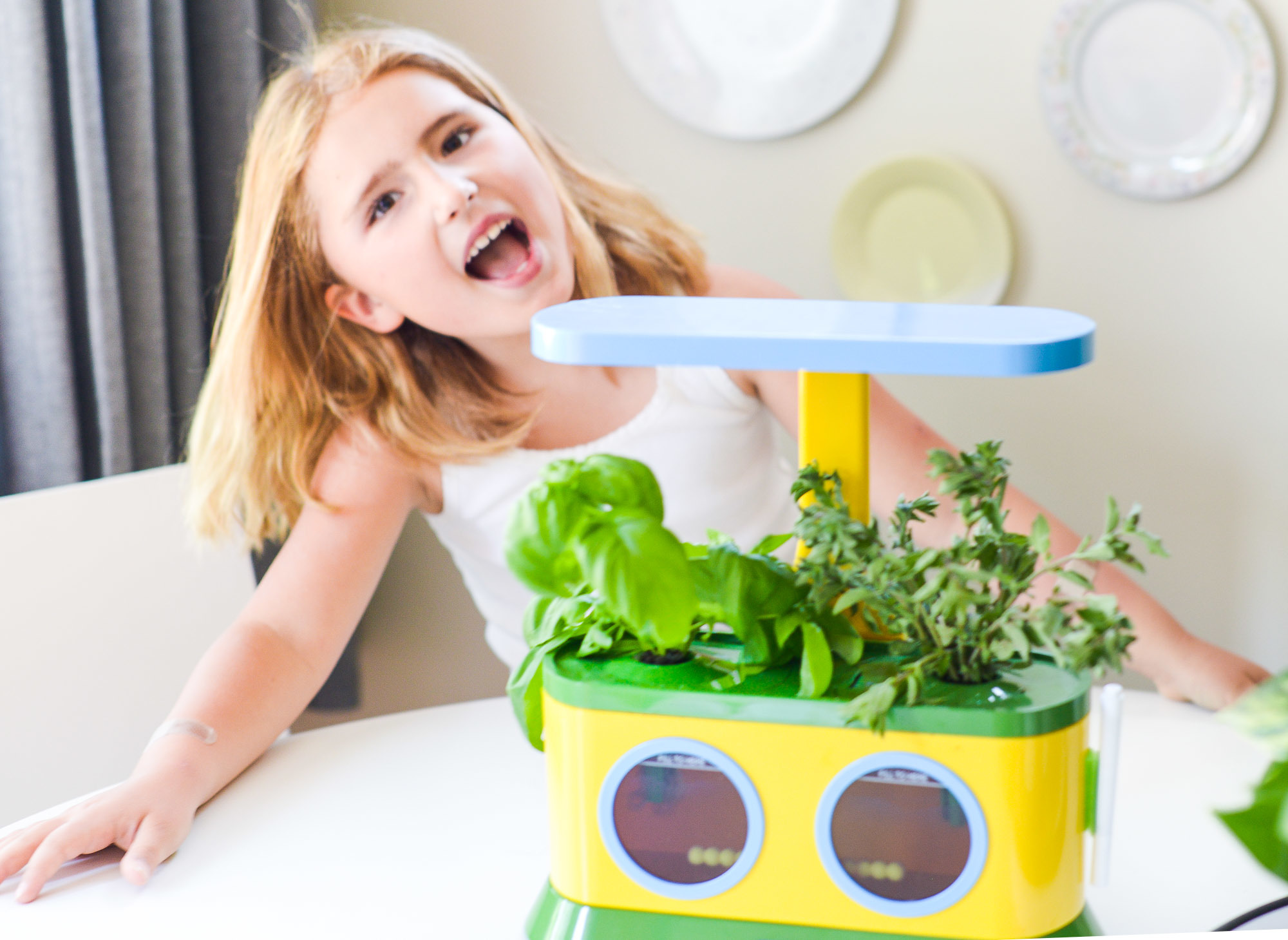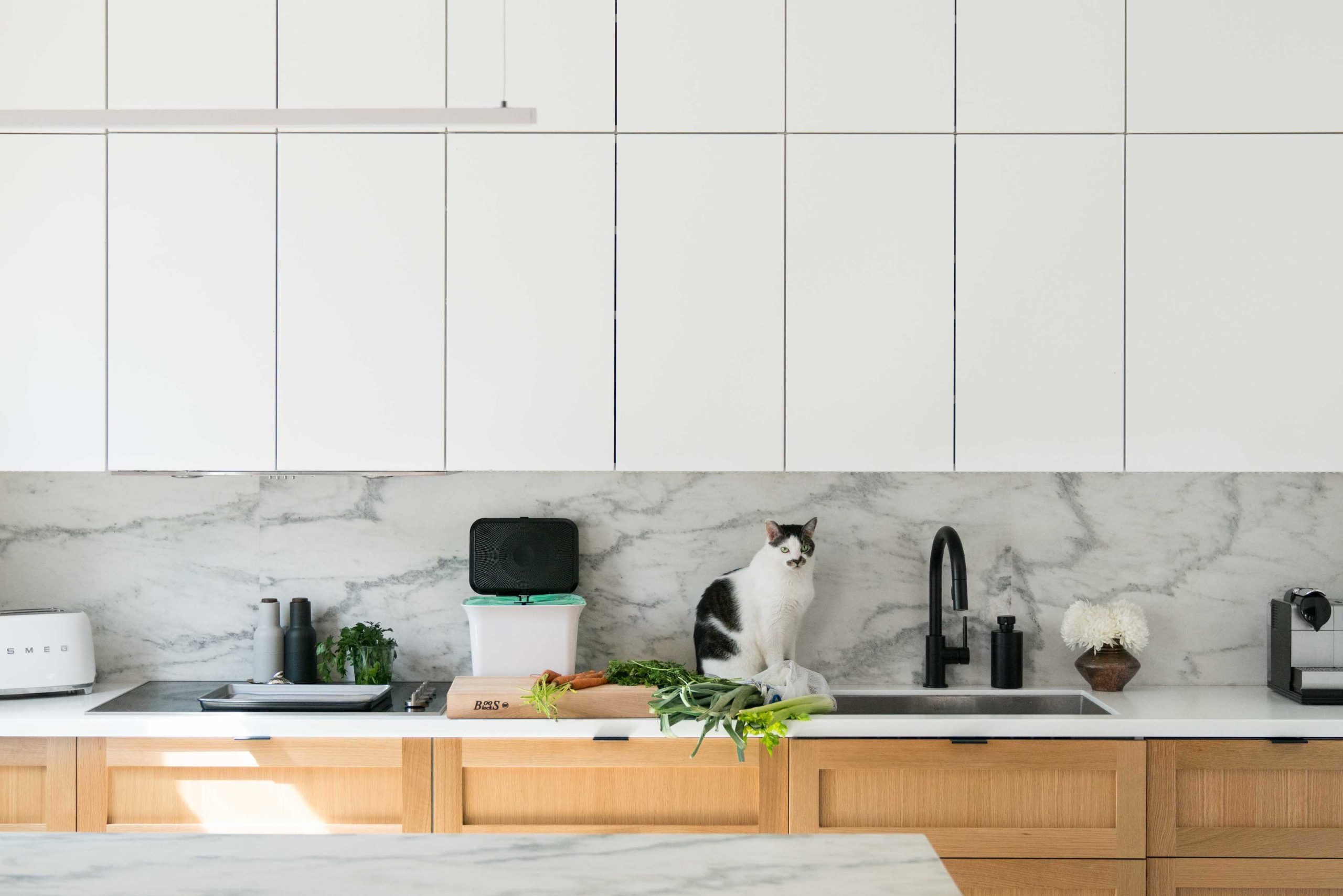
My husband and I consider ourselves environmentally conscious. We have a hybrid electric car. We use reusable bags (and have minor angsty moments when we don’t). My parents composted before it was cool (more specifically, while it was weird and it was done without structure so it became more of a wildlife drive-thru). And as I write this, it sounds like I’m doing an okay job. It sounds like I’m trying. But the truth is, sometimes I feel like I’m just not doing enough. Like my love of paper towels during recipe photo shoots, for instance. I know there are ways I can improve.
So, I texted my brother and his wife who both have their masters degree in sustainability for guidance. They said the most important changes aren’t huge overhauls like installing solar, but the consistent use of small changes to daily habits. Every little bit helps. And those are the kind of changes I’m confident I can make happen.
There are many ways you can get started, no matter where you are in your sustainability journey. What it comes down to is slowing down to think through your daily habits and choices to make thoughtful consumption second nature. Know that you have the power to make choices that result in sustainable behaviors for you and your family. Step one? Ask yourself how you can reduce waste in your kitchen.
Here are some small changes to get you started:
Reusable, Not Single Use:
Switch from single use items to reusable items.
- Aluminum foil to lining baking sheets with Silpats
- Plastic wrap to beeswax
- Plastic baggies to Stasher silicone bags
- Plastic single use bottled waters to reusable water bottles
- Plastic straws to glass or metal straws
- Plastic bags to a reusable grocery or farmers market tote
- Plastic produce bags to mesh produce bags
- Paper towels to multi-use towels like Full Circle’s cloths
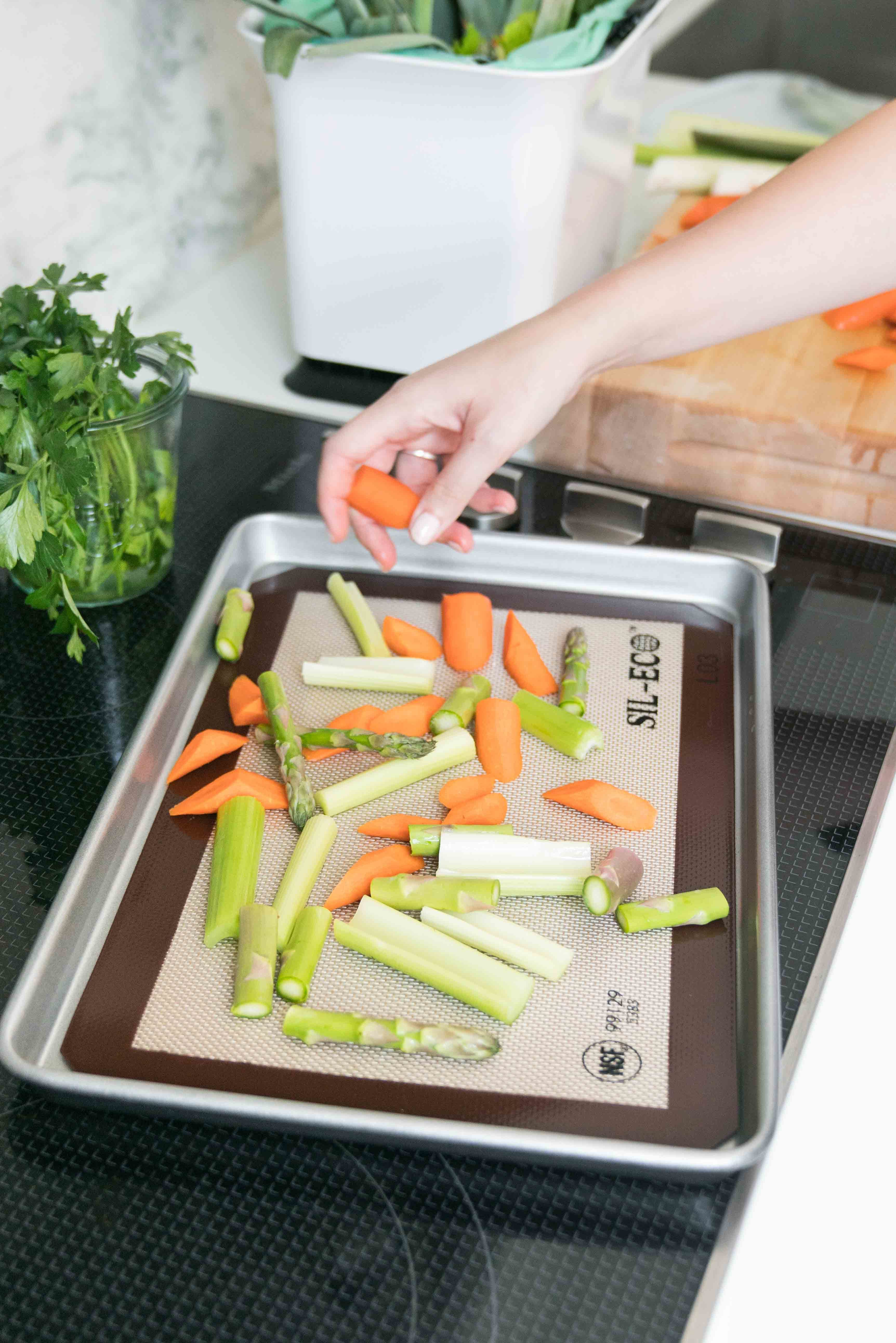
Now Actually Use It:
Assess where you’re using those non-reusable items and think how you can make it a habit to bring along that reusable version. I keep my grocery bags in the trunk of the car and return them back to the car immediately after unloading groceries. If you’re a coffee drinker, how can you remember to bring your reusable mug? Store it in your work bag?
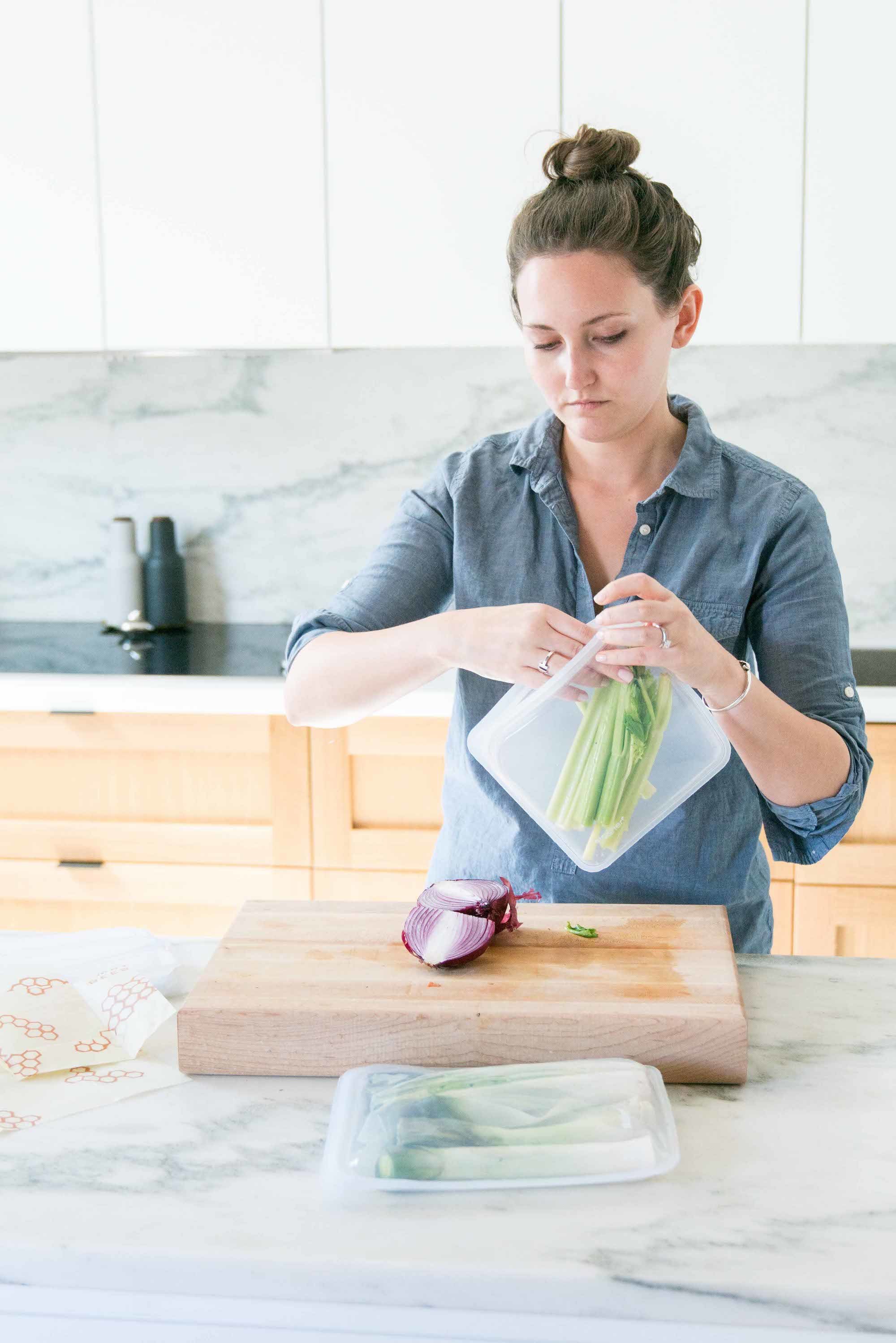
Dispose responsibly:
When an item reaches the end of its’ life cycle in your possession, think compost and recycle before landfill and let that help dictate what you buy. Composting and recycling as much as possible reduces the amount of garbage bags going to the landfill. This reduces the use of plastic garbage bags and fossil fuel to get the trash to its final destination. There are lots of counter top and larger outdoor compost containers these days if you aren’t lucky enough to have a compost pick up service in your city. Admittedly, this is something I still need to figure out in my own backyard.
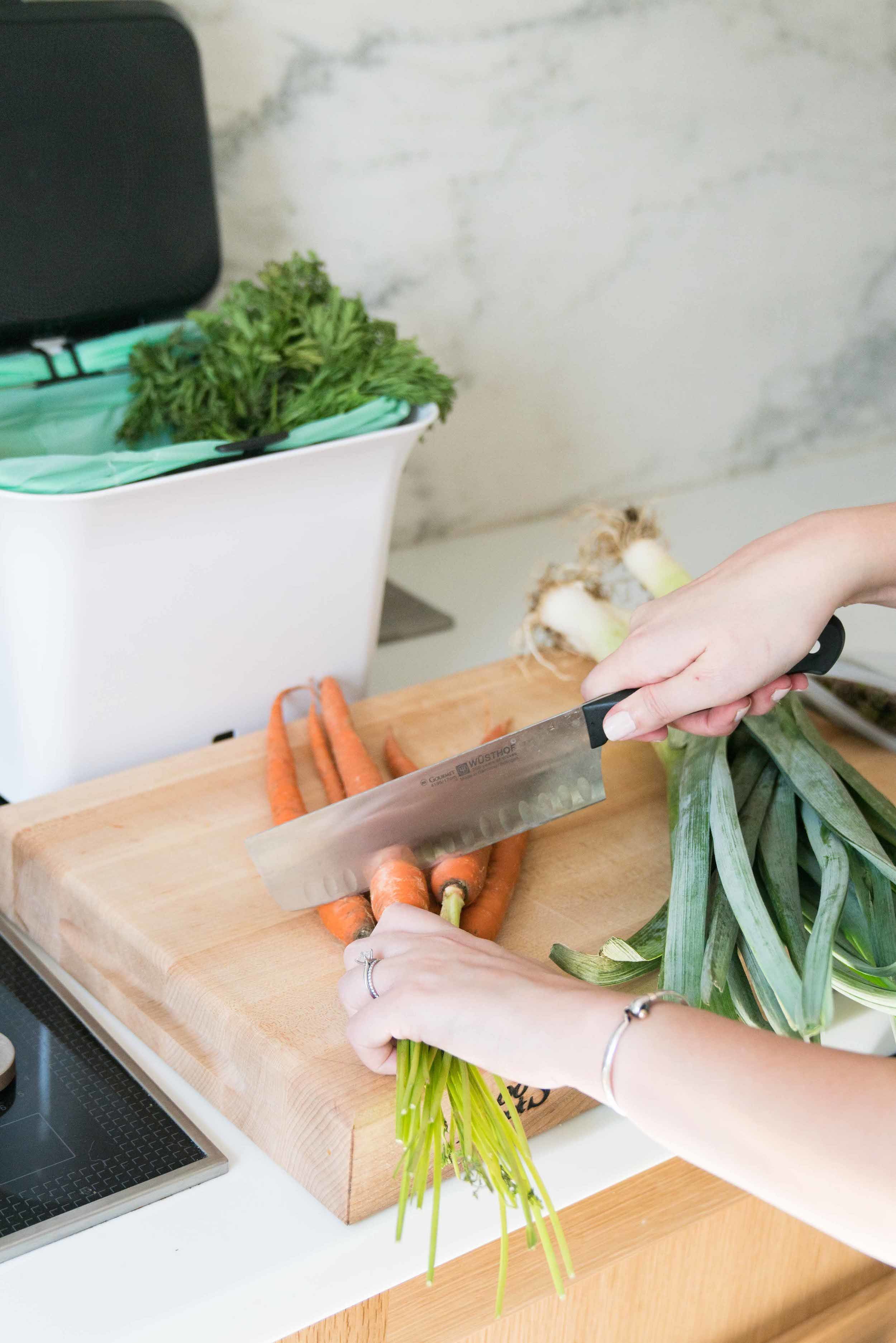
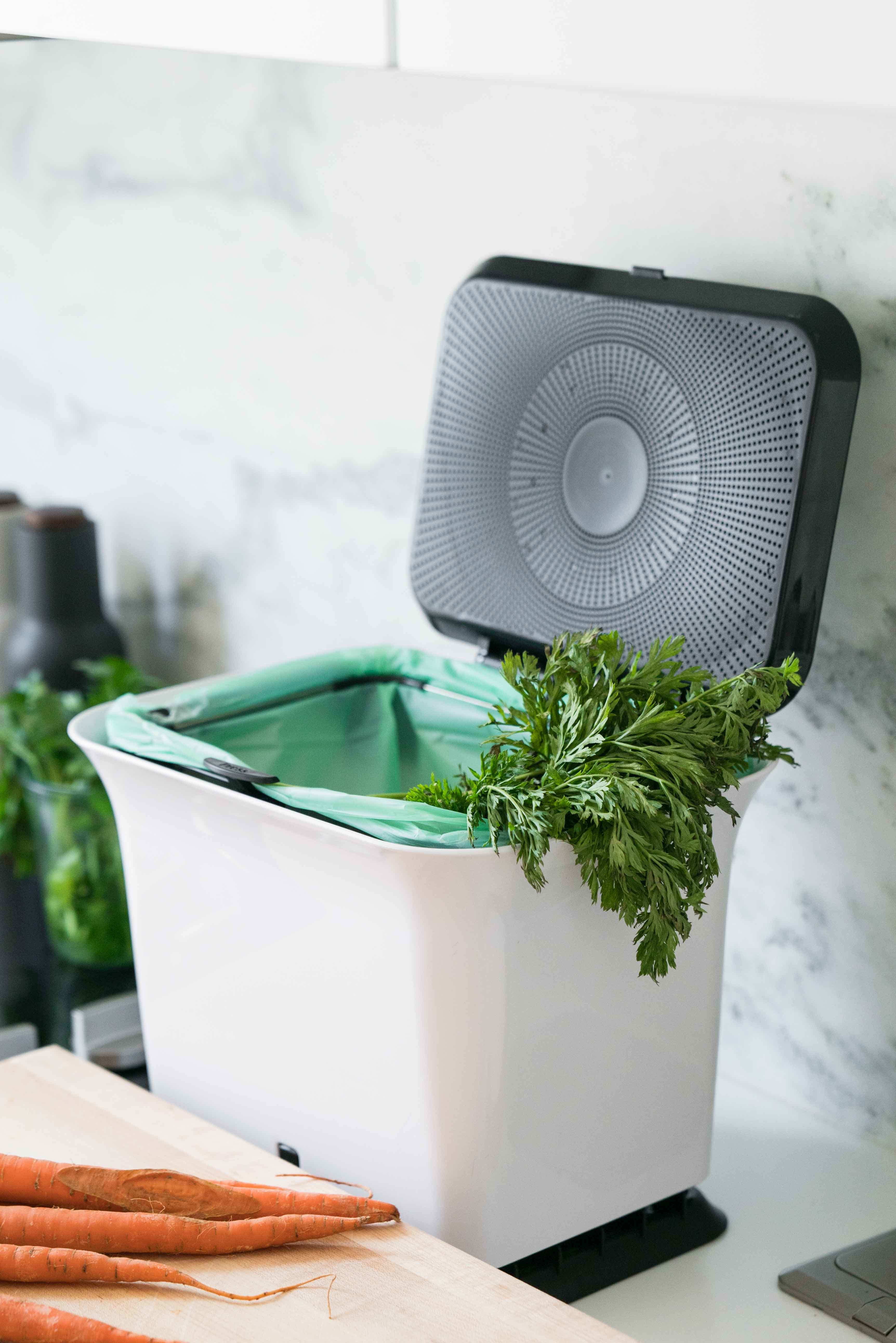
Be Food Conscious:
Food waste is a big issue. It’s estimated that in the US, 40% of our food is wasted and quite frankly, that’s unacceptable. Am I saying you should beat yourself up over a rogue eggplant that went moldy in your produce drawer? No way. But taking a look at your current grocery habits can help make a big impact.
Consider a grocery list to make sure you’ll actually use what you buy to make cohesive meals instead of relying on haphazard impulse buys.
Buy from the local farmers market. Not only does this support your local economy, but it reduces the energy footprint of your food since it travels less, especially when it comes to meat.
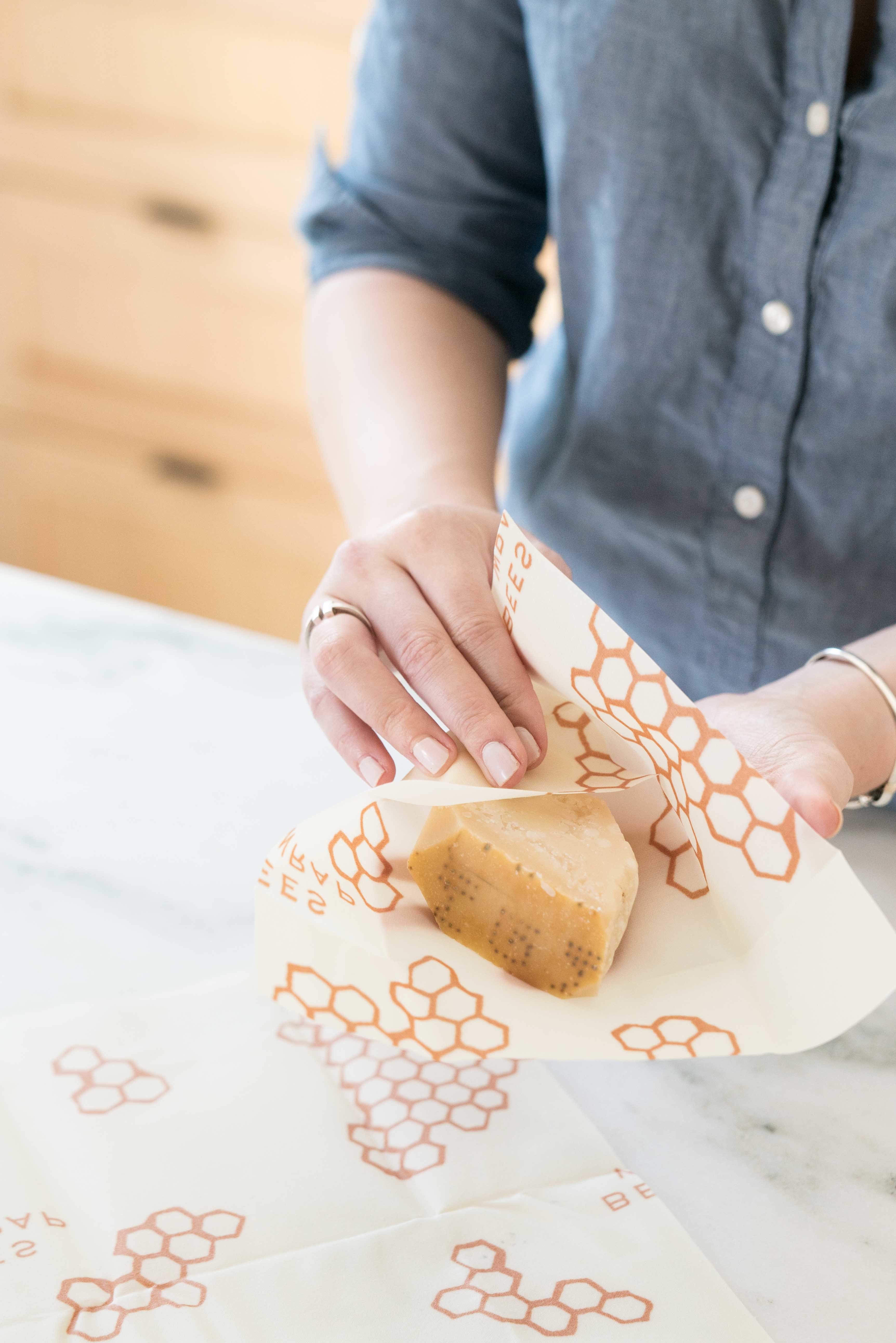
If you over-buy, freeze what can’t be used before it goes bad. I do this with fruit for smoothies.
Think frittata or pasta to use up leftover items. They make the perfect catch all for that half a bell pepper or tablespoon of goat cheese. To keep track of what needs to be used, I do a fridge check once a week and write a list of what needs to be used, then try to build a recipe around it.
Use Fresh Paper or OXO containers with ethylene capture to keep produce fresher for longer.
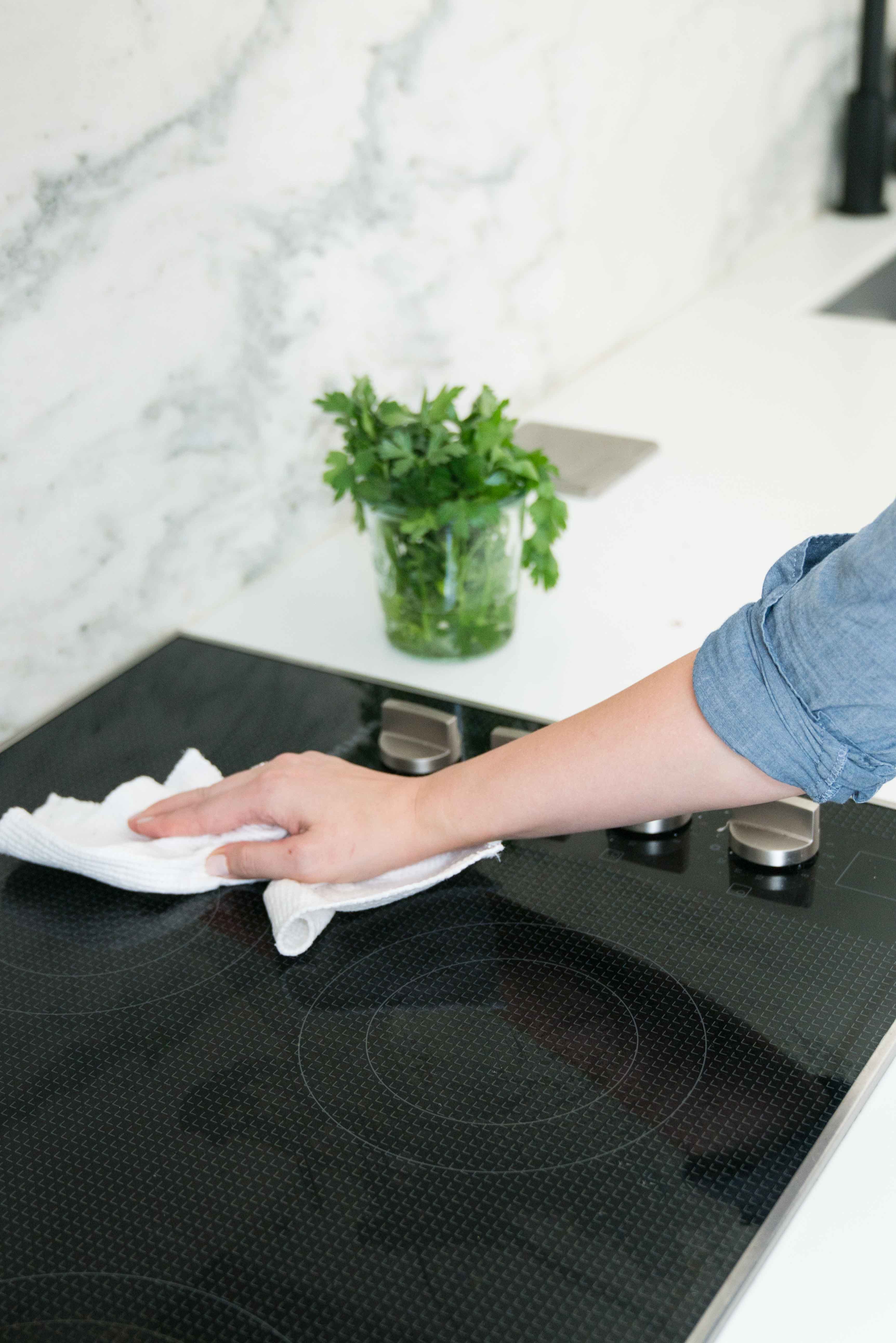
Grow your own herbs. Plant basil on your windowsill or rosemary on your tabletop. Having herbs at home is not only the freshest you can get, but it also avoids packaging at the store. Plus, who actually uses the entire hay bale of dill sold at the store?
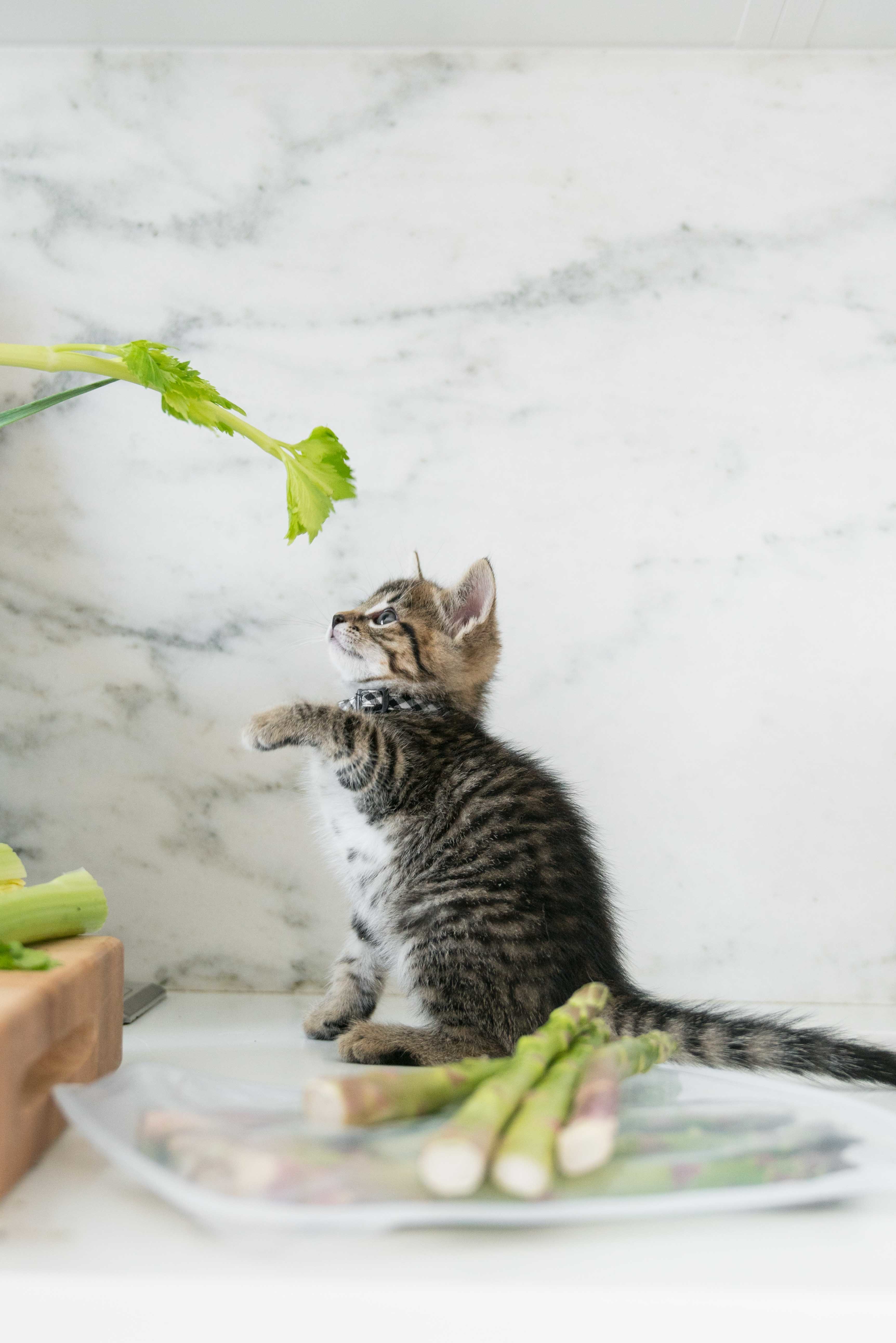
Be conscious of buying water intensive foods. Some of our favorite foods take a lot of water from regions currently experiencing drought. Make sure when you do buy these items, they don’t go to waste.
Reduce single serving wrapped items and buy in bulk when possible (unless it totally takes over your kitchen storage and will drive you insane!). As a dietitian I know that convenience for healthy eating is extremely important. But when it comes to conscious consumption, look for opportunities to buy items in bulk and separate out into single serving Stasher bags for on the go eating.
Buy High Efficiency Appliances:
If it’s time for an upgrade, look into ‘HE’ appliances. Not only will they save energy, but they reduce the impact of the actual energy generation method required to use them. When it takes less energy to run your fridge, it means less energy needs to be produced. Want an ultra simple home efficiency switch? When your light bulbs burn out, change to LED.
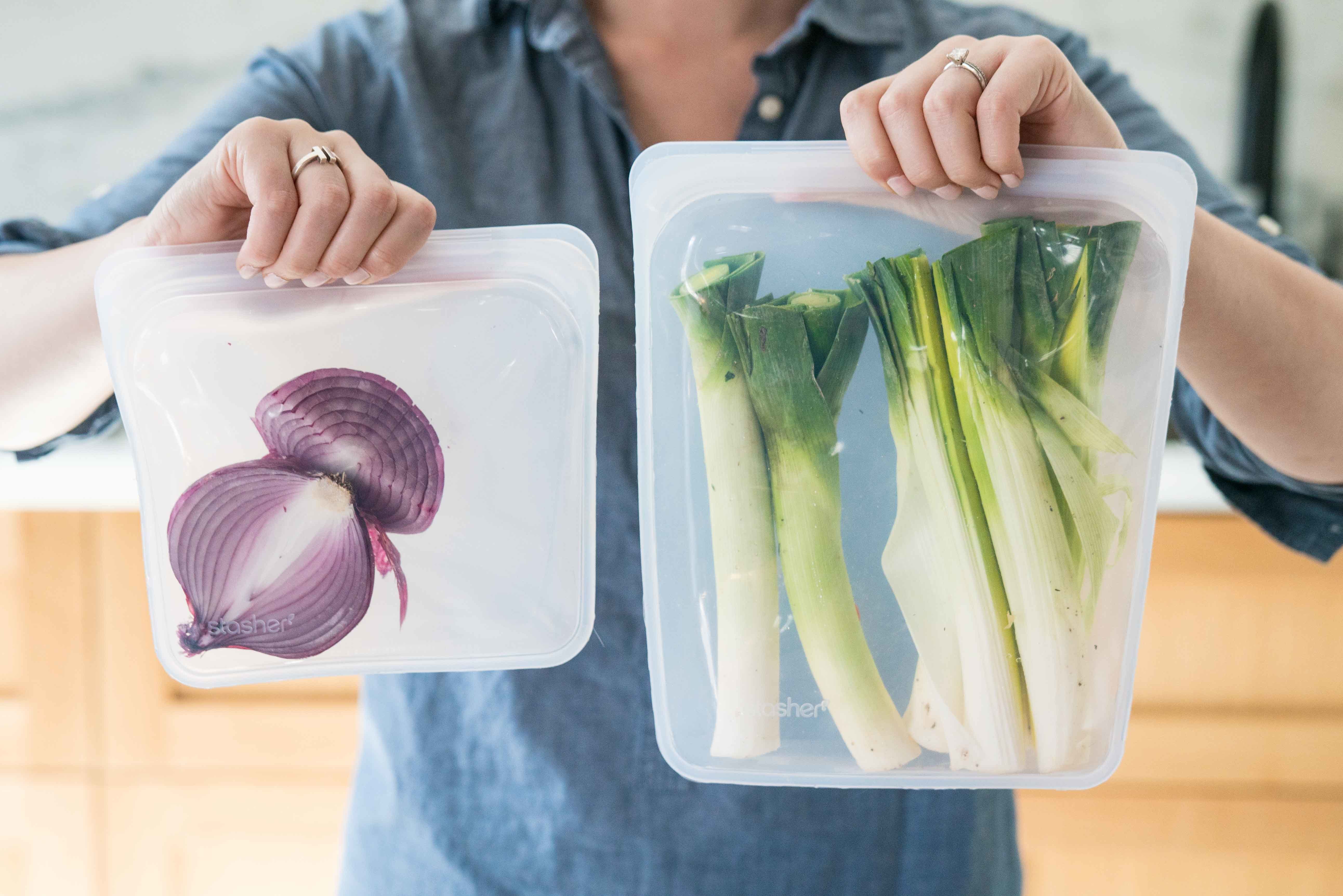
Don’t feel discouraged or overwhelmed or guilted by the seemingly endless changes to be made. Quite frankly, I’m not suggesting you do them all. Instead, choose to look at these as possibilities: lots of small ways you can choose to waste less.


